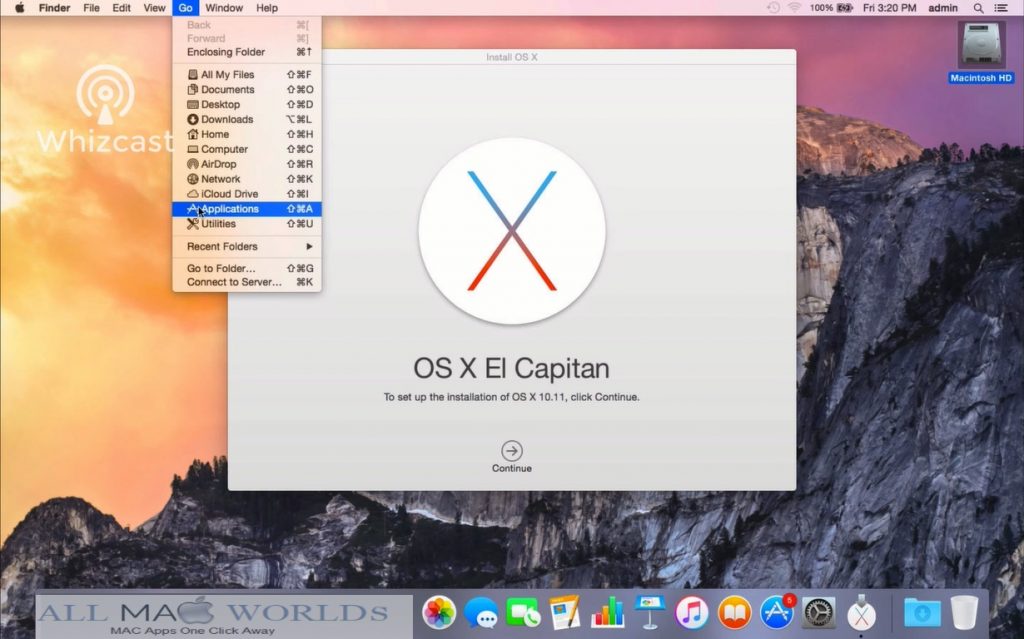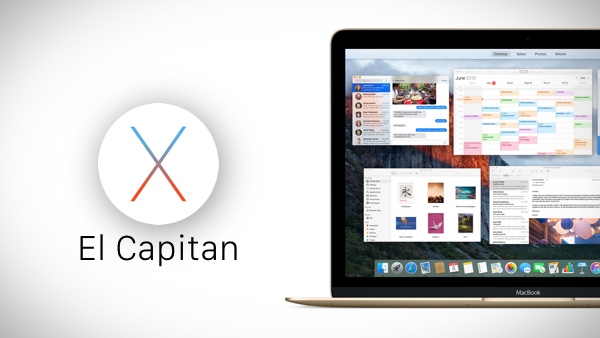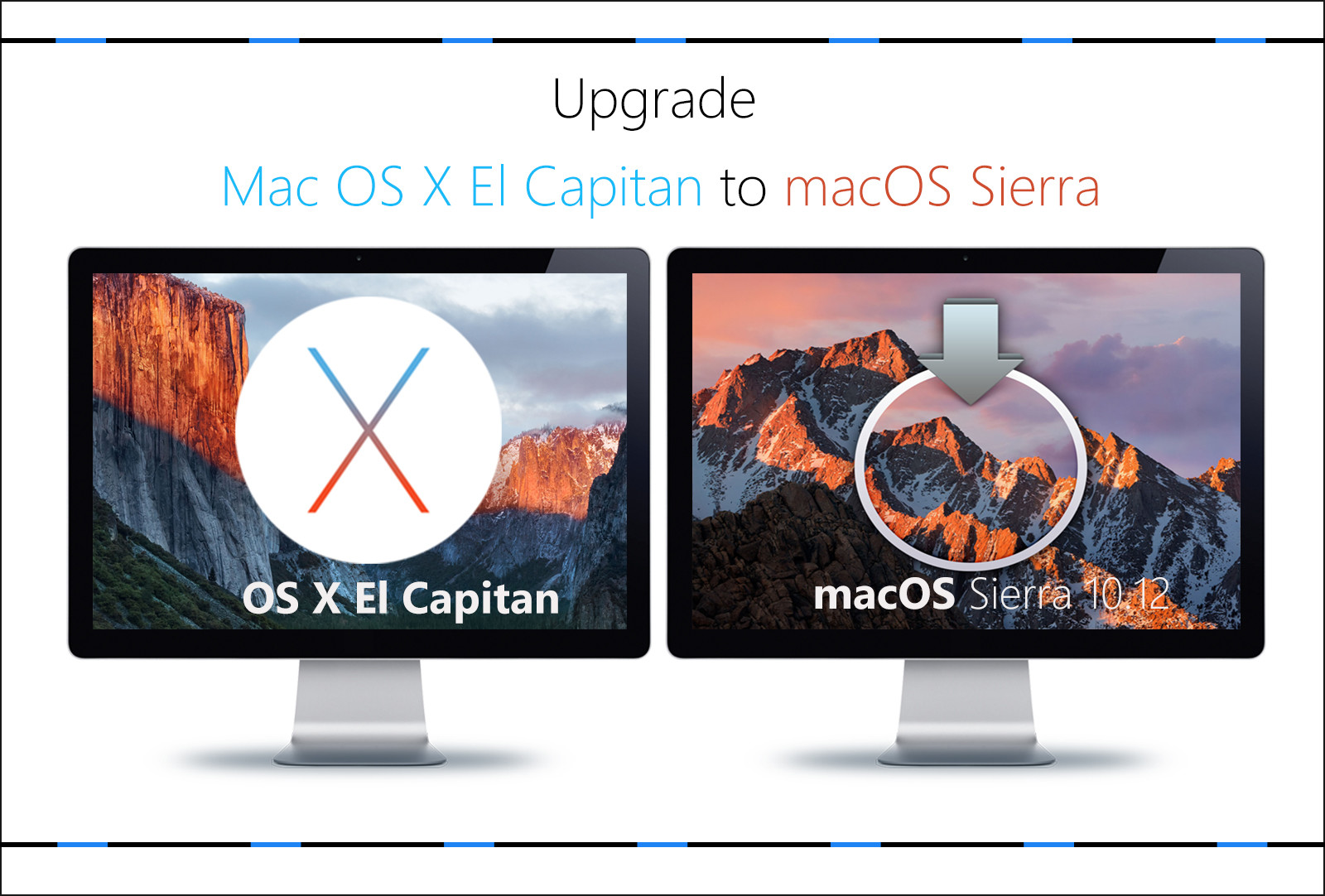

- Os x 10.11.6 update mac os x#
- Os x 10.11.6 update install#
- Os x 10.11.6 update full#
- Os x 10.11.6 update software#
- Os x 10.11.6 update mac#
– Set: `When using this certificate:` to `Always Trust` – Find it (“ISRG Root X1”) in the list and double click on it. But not `System Roots` (which is where it *would* be, if we were on 10.12.1+)
Os x 10.11.6 update install#
You can install it into either the `login` or `system` keychain. You should see that the fingerprints match between and. (Active > ISRG Root X1 > Self-signed > der) This is for *your* safety since you *shouldn’t* trust me. So you know that the Root Certificate I’ve linked to is in fact the one that LE provides and Apple has certified/trusted. This solution is floating round reddit: *QUOTE* And when you do that, homebrew puts all the config files under
Os x 10.11.6 update mac#
Then, I had upgraded to native Mac Silicon when that became available. Well, I did that, and it made no difference.Īfter a little fossicking, I realised that I had installed dovecot om my M1 Mac, using homebrew, in Intel mode (because dovecot wasn't originally supported on ARM under homebrew). (You need to restart dovecot after that to get it to re-read its config files). Ssl_cert =
Os x 10.11.6 update software#
In any case, for the enthusiast hacker who would keep such old devices and software around, it’s actually really easy & simple to install an additional root certificate to trust. So, just maybe, you could imagine a person having an up-to-date Chrome web browser running on OS X 10.11 still, to this day.

Anyway, it seems to list 10.11 as the minimum for now. Maybe those special long-term support Firefox ESR versions have lower requirements, and still getting security patches, if web feature compatibility is not an issue.Ĭhrome I read also planned to switch to its own certificate store. Where would they be getting a usable web browser in the first place? Safari, frozen in time, lacking years of advancement and security fixes, wouldn’t do.įirefox, which happens to have always carried its own set of updated trusted root certificates, and thus would not be affected by this incident, now lists 10.12 Sierra as its minimum. Updated 0845 UTC 2 October 2021 with link.Īn expiring root certificate has to be very low on the list of actual issues people wishing to get real use out of such an ancient system must fight continuously. Thanks to for drawing attention to this, and to Peter for the link. Whether you’re running a server which relies on Let’s Encrypt certificates, or trying to connect your browser to one, the most helpful and information page on the subject is this one from Certify The Web. This not only affects Safari, but also third-party apps which use parts of WebKit to connect to websites.
Os x 10.11.6 update full#
Full details are in this article, which explains what you can do to address that. Versions from 10.12 (Sierra) to 12 beta (Monterey), and all recent versions of iOS and iPadOS may refuse to load an affected site, claiming that their intermediate and root certificates are out of date, despite the updated root certificate being present.

This certificate expiry doesn’t only affect older versions of macOS.
Os x 10.11.6 update mac os x#
It may be possible to make changes within the root certificates to work around this: details are given in that article.Īlthough this specific problem shouldn’t affect any Mac which has been updated to a version of Mac OS X or macOS later than 10.12.2, all later versions of macOS are prone to a related problem… Although later versions of Mac OS X and macOS have had replacement root certificates installed, those aren’t in older versions of Mac OS X, nor in iOS prior to version 10. This is relied on by Let’s Encrypt security certificates. The reason, explained in full detail by Scott Helme, is that a widely used root security certificate, that for IdenTrust DST Root CA X3, will expire in just over a week, on 30 September. If you’re still running El Capitan, or any version of Mac OS X prior to 10.12.1, then you’re about to run into problems with some popular security certificates.


 0 kommentar(er)
0 kommentar(er)
